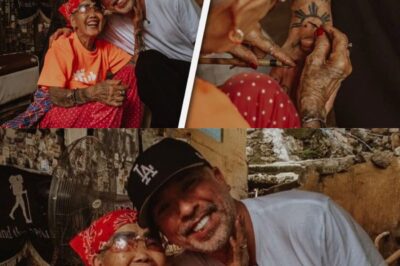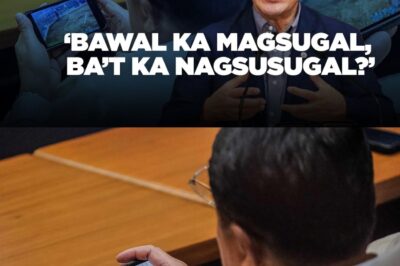In a disturbing incident that has sparked nationwide outrage, two Persons with Disabilities (PWDs) were allegedly publicly humiliated by a Starbucks employee at the Festival Mall branch in Muntinlupa City. The event, captured in a viral video, has exploded online and reignited conversations around disability rights, corporate accountability, and public decency in customer service.
The incident happened at Starbucks Festival Mall Muntinlupa, one of the busiest locations of the globally renowned coffee brand. Eyewitnesses claim that the Starbucks employee refused to properly serve the PWD customers and even mocked them in front of others. In an even more shocking move, the employee reportedly called security to escort the individuals out, further escalating the humiliation.

A video of the event quickly went viral on social media. It was uploaded on multiple platforms including YouTube. The video has drawn thousands of reactions, comments, and shares—fueled by hashtags like #BoycottStarbucksPH, #JusticeForPWDs, and #StarbucksScandal2025.
In response, Starbucks Philippines issued a statement acknowledging the incident and stating that an internal investigation is underway. According to their official message, they deeply regret what happened and the employee involved has been placed under administrative review. However, many netizens believe this response is far from sufficient, arguing that a simple statement cannot undo the emotional damage caused nor restore public trust.
What makes this Starbucks PWD incident even more alarming is the broader social implication. It reflects not just one case of employee misconduct, but a larger issue of how society continues to neglect the dignity and rights of persons with disabilities. Despite the Philippines having over 1.4 million registered PWDs, many still suffer from discrimination, limited access, and insensitive treatment in public places. The Festival Mall Starbucks branch, which should have been a safe and inclusive space, became a platform for shame.
Legal consequences may follow soon. According to disability rights advocates, preparations are being made to file formal charges against both Starbucks and the employee under the Magna Carta for Disabled Persons (RA 7277). If proven, the company could face serious legal repercussions. Atty. Ricardo Santos, a legal representative of a prominent disability advocacy group, stated that they are demanding a public apology, comprehensive training for all Starbucks employees, and strict disciplinary actions. He emphasized that this is not just about punishment but about setting a precedent for respectful and inclusive service across all industries.

Public reaction has been swift and emotional. Social media is flooded with comments condemning the employee’s actions and demanding real change. Many former Starbucks patrons have declared they will no longer support the brand until clear, corrective actions are taken. One netizen wrote, “I used to love Starbucks. Now I can’t even step inside without remembering that video.” Another commented, “PWDs deserve dignity. This isn’t just bad service—it’s discrimination.”
So what should Starbucks and other companies take away from this? Clearly, inclusivity cannot be just a word in a company handbook. It must be embedded in employee training, in daily customer service, and in company culture. The Starbucks Festival Mall scandal shows the real cost of ignoring empathy and proper protocol. Without real accountability and action, consumer trust is at risk—not just for Starbucks, but for any brand that fails to uphold its values.
This viral Starbucks PWD incident should not be dismissed as a one-time lapse in judgment. It should be a turning point—a catalyst for companies to review their policies and genuinely commit to inclusive practices. The public is watching, and they are demanding more than apologies. They want proof that Starbucks is willing to do the right thing.
If you want to help, start by sharing this story. Spread awareness about PWD rights. Support advocacy groups working on disability inclusion. Speak out whenever you witness discrimination, no matter how small it seems. Together, we can ensure that this scandal doesn’t end in silence but becomes a loud call for lasting change.
News
Secret No More: Gerald Anderson and Gigi De Lana’s Private Wedding in Batangas Breaks the Internet – Here’s What You Missed!
Did Gerald Anderson and Gigi De Lana just get married in secret? Yes — and the internet can’t keep calm….
“She Was Gone for Minutes”: Mona Alawi Found Unconscious, Ivana Alawi in Tears – What Really Happened?
In a moment that shocked fans across the globe, Mona Alawi, the beloved younger sister of actress and YouTube star…
Hanggang sa Muli, Mahal Kita’: Why Rufa Mae Quinto’s Heartbreaking Farewell to Her Husband Is the Story You Can’t Ignore
Filipino actress and comedienne Rufa Mae Quinto is grieving the unexpected passing of her estranged husband, Trevor Magallanes, and the…
Jo Koy Blessed by Tattoo Legend Whang-Od: The Viral Moment Everyone’s Talking About!
Why did Jo Koy travel all the way to the remote mountains of Kalinga? What really happened during his visit…
Caught Red-Handed: Congressman Busted Watching E-Sabong During House Session – Tulfo Weighs In!
In a moment that sent shockwaves through the online community and the halls of Philippine politics, a congressman was caught…
Claudia Barretto Breaks Silence: The Real Reason Behind Julia and Gerald’s Breakup – You Won’t Believe What She Revealed!
When celebrity couples part ways, the public is often left in the dark—guessing, speculating, and waiting for answers. But not…
End of content
No more pages to load












